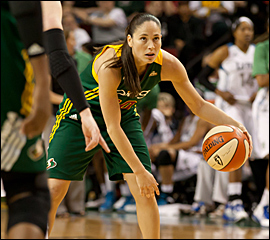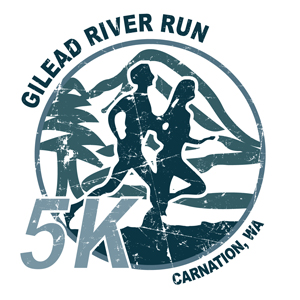Achilles Tendon
The tendon connecting your calf muscle to your heel bone is called your Achilles tendon. It is the largest tendon in your body. You use it every day when you jump, run, and walk. The Achilles tendon is prone to overuse (called tendinitis) because of the stresses it sees every day.
The Achilles tendon is one of the most commonly injured tendons, especially among athletes. Tendinitis is the most common form of injury, resulting in pain and swelling either within the tendon or where the tendon inserts into the heel bone (calcaneus). In worse cases, too much pressure on the Achilles tendon can cause it to partially tear or even rupture completely.
What can cause an Achilles tendon injury?
A rupture of your Achilles tendon often occurs when you abruptly start moving, such as while sprinting. Men age 30 years and up have more Achilles tendon injuries than other groups. We see these injuries a lot in so-called “weekend warriors.” There are a number of things that can cause or contribute to an Achilles tendon injury. Some of these might be:
- Overuse
- Inadequate stretching before a strenuous activity
- Performing high-impact activities, such as jumping or plyometrics
- Foot deformities, such as flat feet or high arches
- Tight muscles and tendons in your legs
Athletes who participate in the following activities may experience Achilles tendon injuries:
- Gymnastics & Dance
- Running
- Football
- Baseball
- Softball
- Basketball
- Volleyball
- Tennis
How can I prevent an Achilles tendon injury?
There are many ways to prevent an Achilles tendon injury.
Maintain a Healthy Weight: Make sure you maintain a healthy weight range that is ideal for you. Avoid being underweight or overweight.
Eat Well: Make sure that you are getting the recommended amounts of vitamins and minerals. A diet lacking in calcium could cause Achilles tendon injuries. The U.S. Institute of Medicine’s Recommended Dietary Allowance (RDA) and Dietary Reference Intake (DRI) suggest that adults should get 1,000-1,200 mg of calcium daily and at least 700 mg of phosphorous.
Calcium is essential for your bones to grow and also helps with muscle contraction. Too little calcium or phosphorous intake will result in your body taking what is needed from other places, and this can lead to weaker bones.
Exercise Regularly: Injury prevention involves exercising often to keep your tendons, muscles, and bones strong. Make sure you only do exercises approved by your doctor. If you go to a gym, ask a trainer to help you use the equipment properly.
Pick the Right Shoes: Make sure that you are wearing the correct shoes for your feet. Shoes vary in the amount of cushioning and arch support they provide. Have your athletic shoes fitted by a specialist.
Avoid Hard Surfaces: Soft surfaces, such as cushioned floors, are better on your feet than hardwood. Too much time spent on hard surfaces can cause injuries to the Achilles tendon. Simple choices such as picking a grass court over a hard court, or running on a dirt trail instead of a sidewalk will help to reduce impact and may reduce your risk of injury.
Warm Up and Cool Down: To avoid injury to your Achilles tendon, you should always warm up and cool down before and after exercising or any physical activity.
Start Low and Go Slow: As is the case with other structures in the body, the Achilles tendon responds better to gradual increases in intensity. To avoid injury you should not suddenly increase your distance, speed, or steepness. Gradually increase your exercises rather than jumping right in and making big changes to your work out.
Get Strong: Calf muscles tend to be weak in many people, so it is important to strengthen them through exercise. You can do leg exercises with machines, elastic pull bands, and weights. Some good techniques to strengthen your leg muscles include lunges, leg presses, calf raises, squats, and leg curls.
Do Aerobics First: If you are planning on doing aerobics and strengthening on the same day, make sure that you do the aerobic exercise first. This includes running, stair climbing, and playing sports. These activities put strain on the Achilles tendon. If you perform your strengthening activities first, you put your Achilles tendon at risk for injury because it temporarily weakens the tendon.
Test Your Achilles Tendon: You should test your Achilles tendon for injuries after you finish working out. Use your thumb and forefinger to pinch different areas along your Achilles tendon looking for tenderness. If you experience any pain, this could indicate tendinitis.
What do I do if I have pain?
If you develop pain in your Achilles tendon, see an orthopedic foot and ankle surgeon as soon as possible. If the diagnosis of Achilles tendinitis is made early enough, several options such as immobilization, physical therapy, and stretching are available.
If you continue to exercise and do strenuous activity after you develop pain in the tendon, you risk rupturing the tendon. If this occurs, your surgeon may recommend surgical repair of the tendon.



 This Memorial Day, Monday May 27th, Camp Gilead is holding a 5K River Run/Walk and Pancake Breakfast. Our very own
This Memorial Day, Monday May 27th, Camp Gilead is holding a 5K River Run/Walk and Pancake Breakfast. Our very own 
